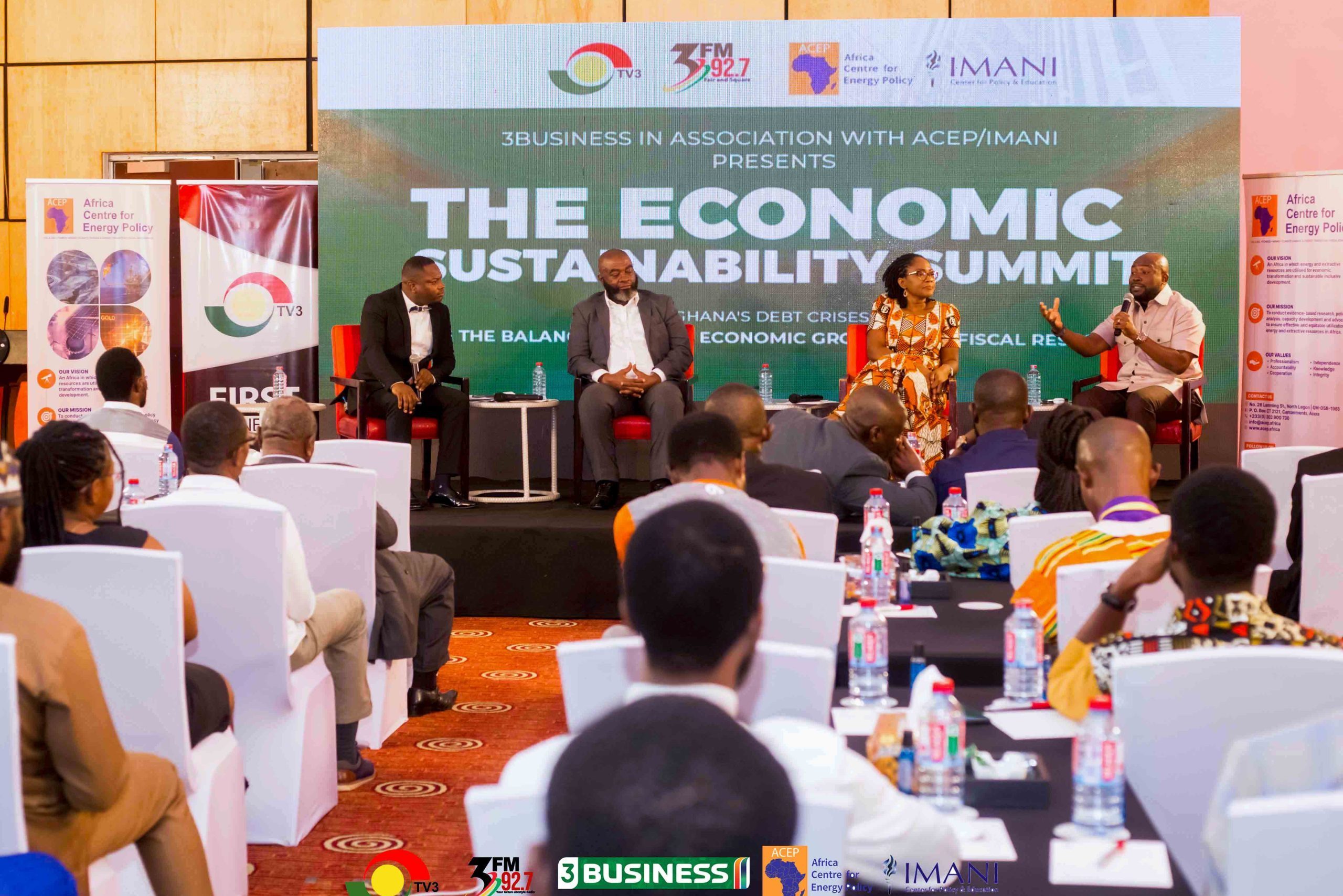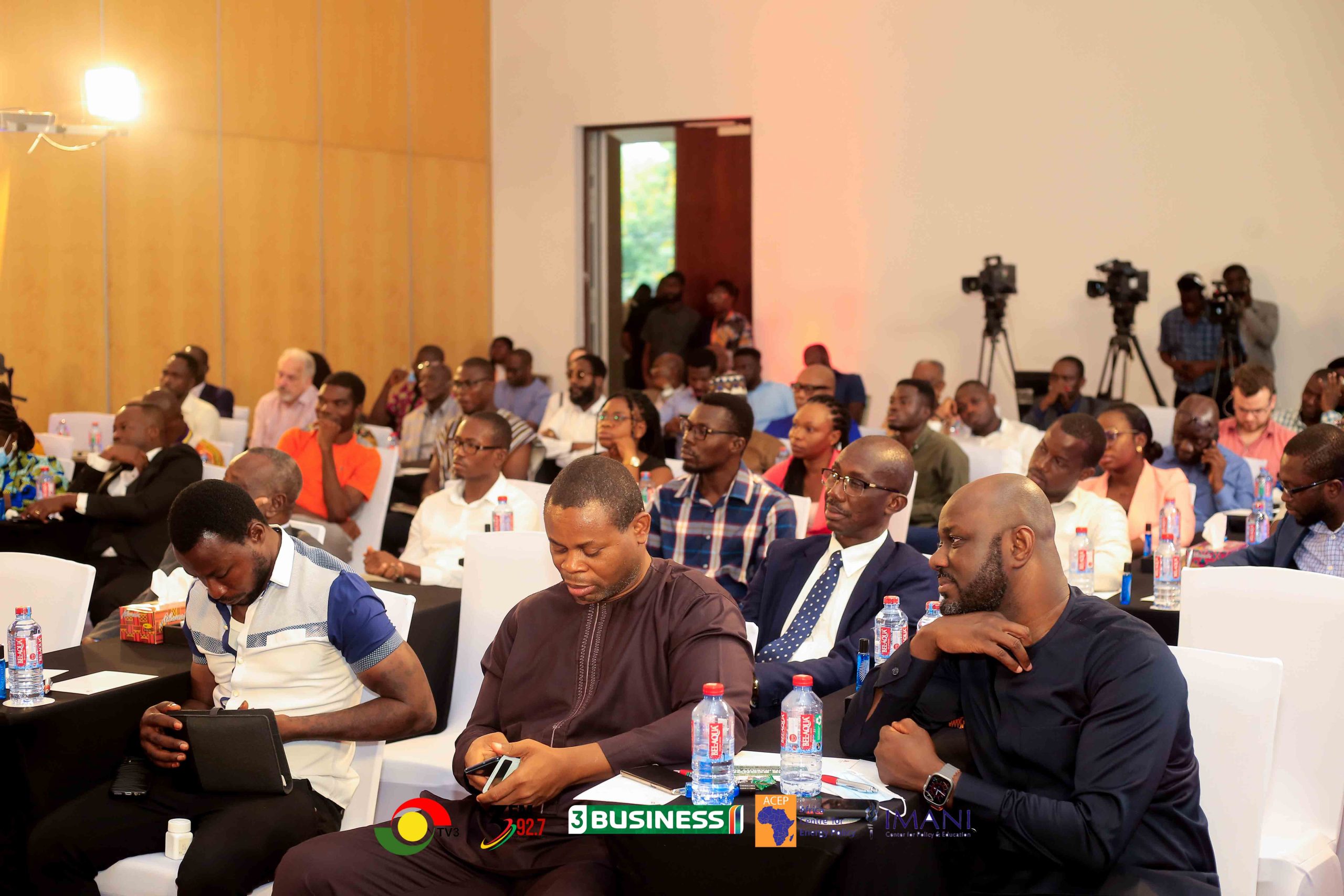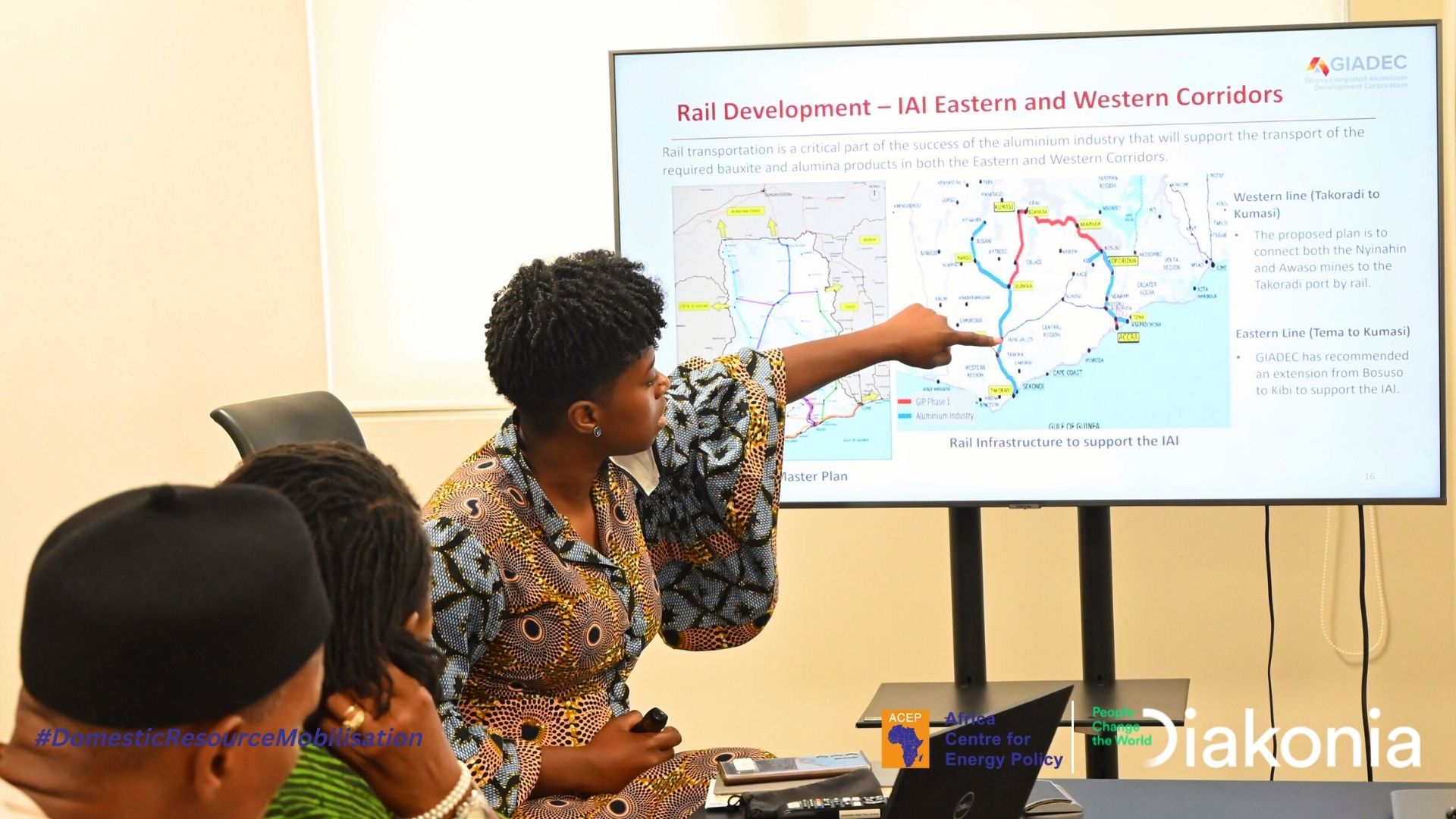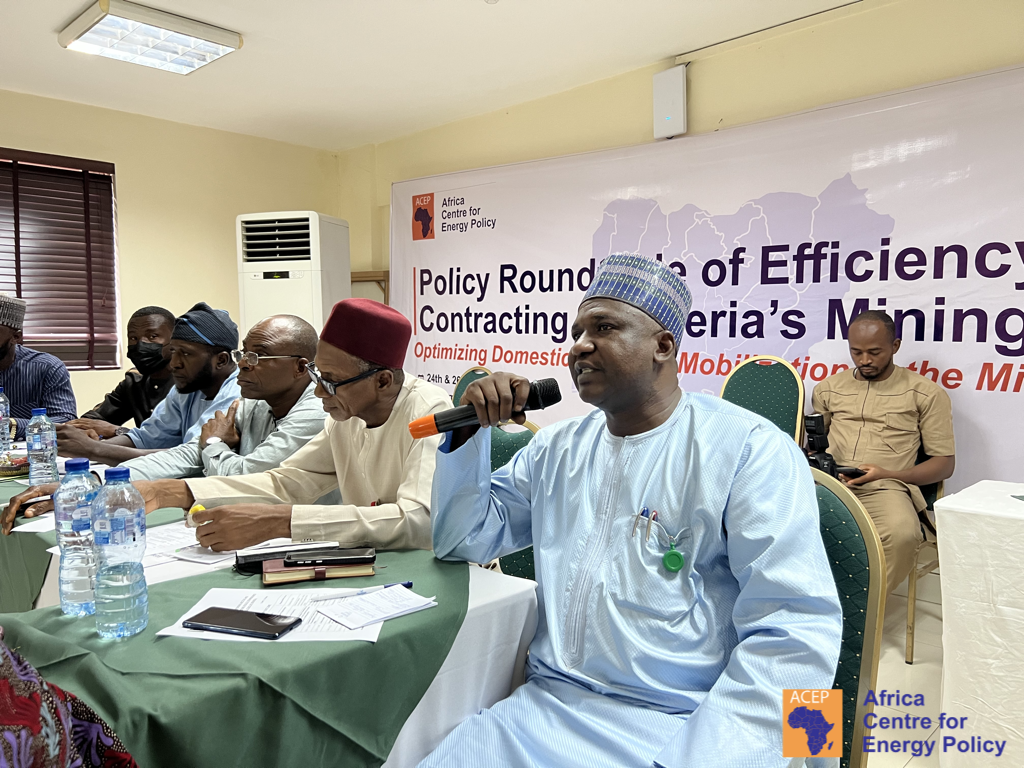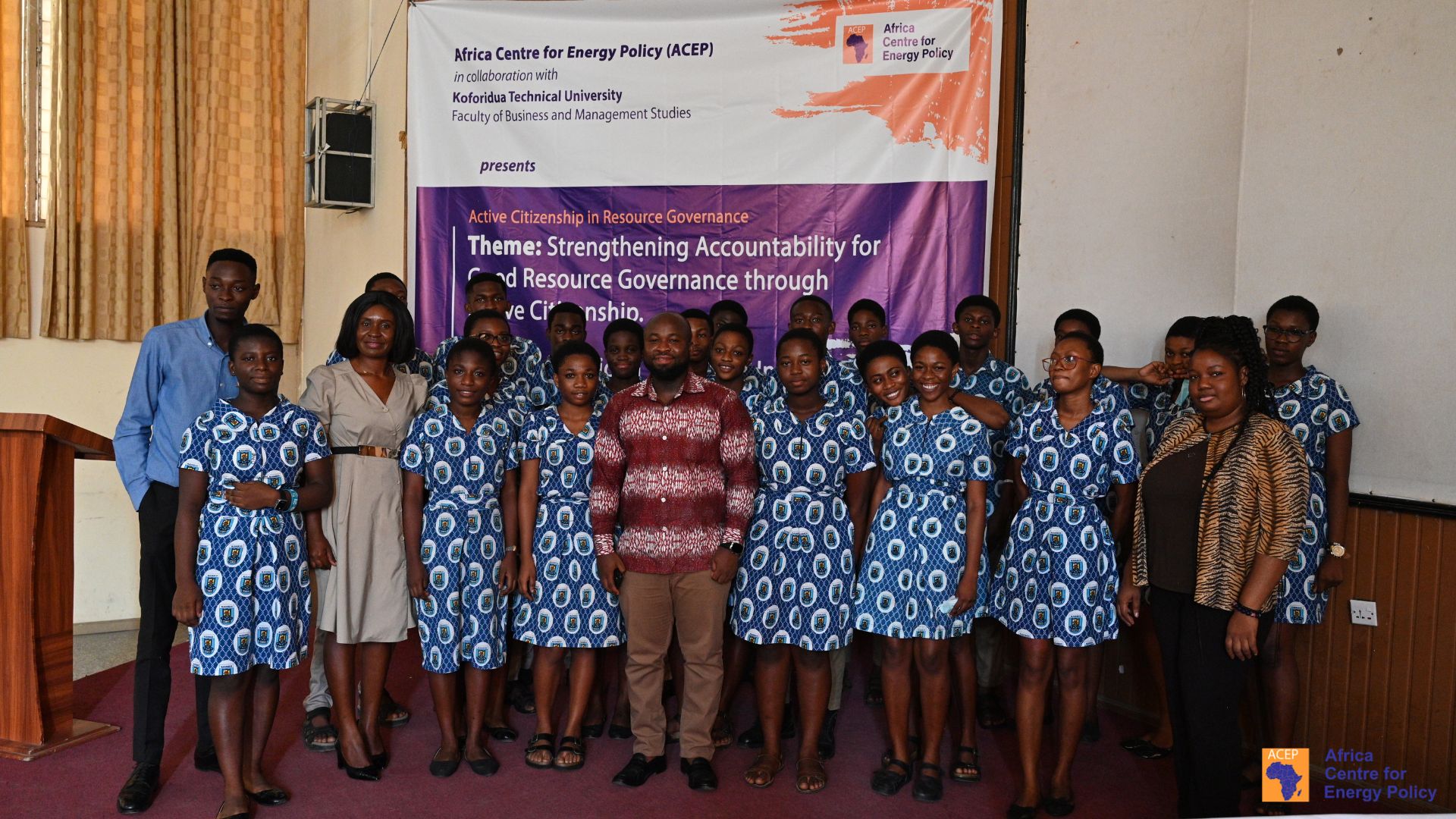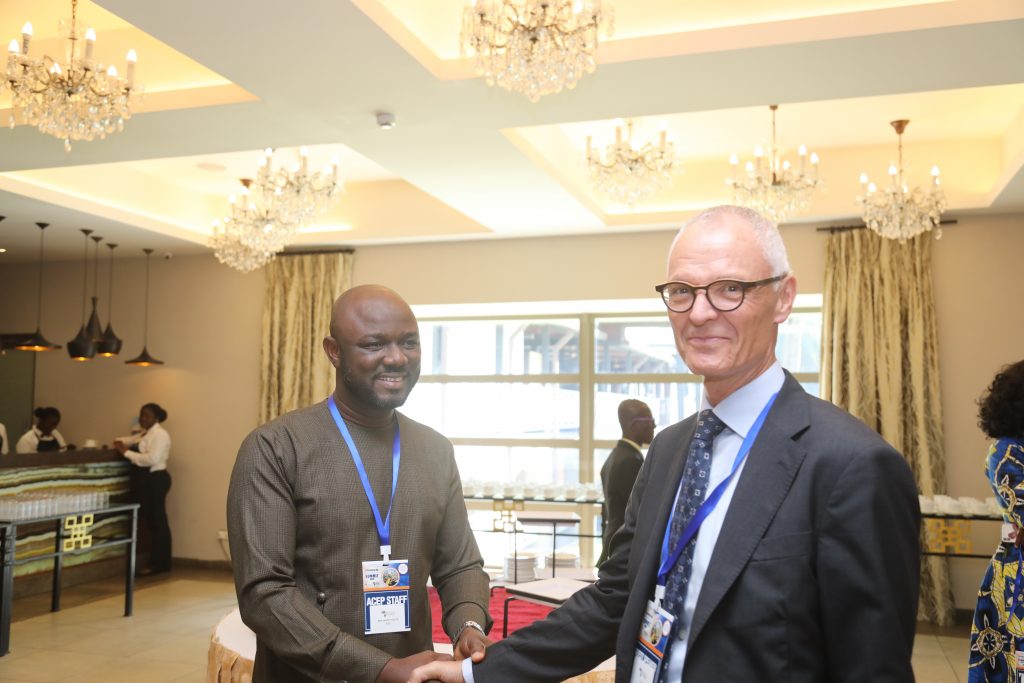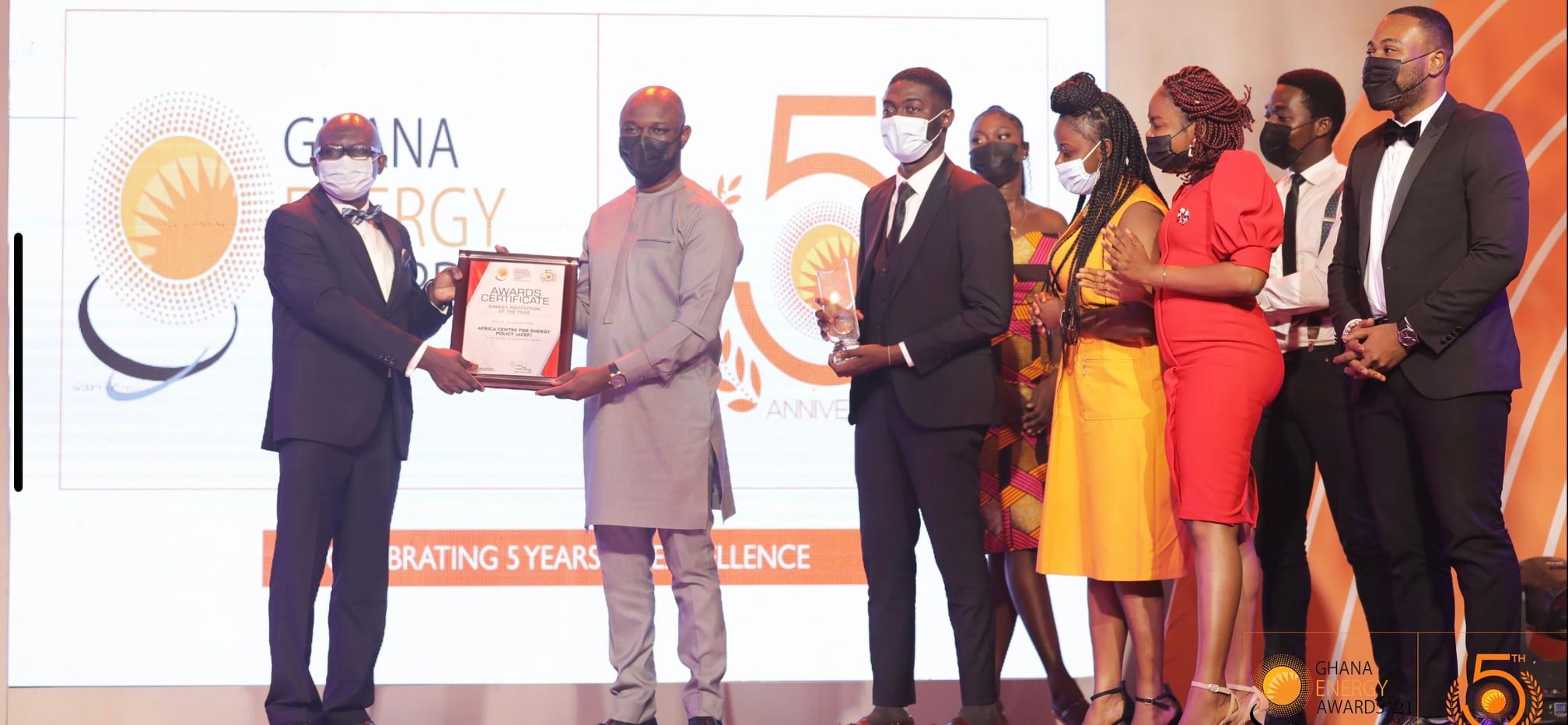Alliance of CSOs working on Extractives, Anti-Corruption, and Good Governance Recent developments on the Agyapa transaction
Ladies and gentlemen of the media, the coalition of Civil Society Organisations on Extractive Sector Governance has noted recent announcements by the Minister of Finance to pursue the Agyapa Royalty transaction, which the government was compelled to shelve in the lead up to the 2020 general elections. The announcement may have come as a surprise to many. However, Civil Society has continuously tracked events around the transaction, including those not in the public domain. We have followed a series of prompts and evidence of preparation by the government, particularly Office of the President, and the Finance Ministry and its agencies, to reintroduce the transaction by any means necessary. Here are examples;
- On 9th March 2021, the President indicated in his State of the Nation Address that “…Government will come back to engage the House on the steps it intends to take on the future of the Agyapa transaction….”
- On 26th March 2021, the Minister of Finance, at his vetting, also indicated that he would resubmit the Agyapa transaction to Parliament to build a national consensus to clear the doubts that pertain to the transaction.
- On 1st May 2021, the Minerals Income Investment Fund (MIIF) Secretariat organised a public forum on the Agyapa transaction with students in attendance at the University of Ghana. Unfortunately, anyone who had been critical of the transaction was conspicuously missing at the event.
- On 2nd June 2021, the Minister of State for Finance indicated to Parliament, during his vetting, that he would want to be remembered for the successful implementation of the Agyapa transaction.
- On 10th May 2022, the Chief Executive Officer of MIIF indicated that his outfit intends to list Agyapa on the London Stock Exchange by the last quarter of 2022.
Ladies and gentlemen, beyond the above publicly available prompts, we are aware that some processes are underway to aid the eventual listing of the company on the London Stock Exchange through Jersey, a tax haven.
- The government has concluded negotiations with Jersey for a Bilateral Investment Treaty (BIT) to provide a broad framework for the relationship between Ghana and Jersey to enable the Agyapa transaction.
- The government is also negotiating a Double Taxation Agreement (DTA) with Jersey to create a binding constraint on Ghana to tax Agyapa Royalties Ltd after the transaction and effectively circumvent one of the critical concerns raised by Civil Society. It is worthy of note that the government, through Ghana Revenue Authority (GRA), has surprisingly started a media campaign on DTAs to convince Ghanaians that another DTA in a tax haven is not new.
State agencies, particularly the Ghana Investment Promotion Council (GIPC) and GRA, have been under pressure to negotiate terms that some of the patriotic Ghanaians in the agencies deem horrendous and an effort to undermine the interest of Ghana.
Ladies and gentlemen, note this, the Agyapa transaction is not an isolated case by the Finance Minister to either hide, sell or collateralise the state’s assets in the natural resource sector. In 2021, the Finance Minister used tax revenue, in total violation of the constitutional requirement for appropriation, to support the acquisition of 7% of Jubilee and TEN oil fields by the Ghana National Petroleum Commission (GNPC) and decided to hold the assets in the Cayman Islands, another tax haven. Efforts by Civil Society to get the government to bring the US$300 million cash flow back to Ghana have proven futile. This is particularly strange under the harsh economic circumstance where the Ministry seeks money from the poor for development. We are also aware of the attempt by the Minister of Finance to collateralise the Heritage Fund for loans. Ladies and gentlemen, we live dangerously if we pretend not to notice these developments.
Friends, the current posture of the Finance Minister to evade public discussions on the Agyapa transaction stands contrary to the President’s commitment before the 2020 national general elections for a broader national consensus on the transaction. The Minister prefers that the public focuses on the process, not the substance and propriety of the transaction. Ladies and gentlemen, we welcome the invitation to discuss the process of the Agyapa transaction. However, this coalition will also stay with the substance of the transaction and better explain to the Ghanaian people why we think the Agyapa royalty transaction is terrible for the country.
Ladies and gentlemen, the most critical assessment of the process of the Agyapa transaction was done by the Office of the Special Prosecutor (OSP) on the risk of corruption and anti-corruption on the deal. The conclusions made by the former Special Prosecutor (SP), Mr Martin Amidu, confirmed some of the concerns raised by this coalition. Mr Amidu highlighted, among others, that the processes of procuring the services of the transaction advisors were “…unconstitutional, null and void, and sins against any positive analysis of the risk of corruption, and anti-corruption assessment in their handling of the Transactions….” Accordingly, he proposed a full-scale investigation into the process of setting up the entire transaction.
The Special Prosecutor also made it very clear that every sound rule of ethics and probity was violated in creating the Agyapa vehicle. It is now the fruit of a poisoned tree. It cannot be redeemed. All the structures for Agyapa, especially the Jersey structure and the agreements structured to take away Ghanaian state control, are inherently corrupt and depraved (page 46 of the OSP report). The OSP showed in the assessment that Agyapa is not the skilled product of professional financial experts seeking to maximise Ghana’s interest but instead a concoction of clique interests.
Ladies and gentlemen, a few of the issues we had with the transaction include the following:
- The government intends to sell 49% of the country’s future receipts of untied royalties from 48 mining leases covering the best gold acreages in the country for a paltry US$500 million to US$750 million. In the last few years, Ghana has exported gold exceeding US$6 billion per year. The bulk of the trackable gold comes from these leases. The royalty rate across these mines ranges between 3% to 5%. In two years, the total royalty received amounted to about US$430 million (US$200 million in 2020 and US$230 million in 2021). Therefore, it stands unconscionable why Ghana seeks US$500 to US$750 million for half of the royalty streams in perpetuity and diverts the critical resources from the budget and, by extension, development financing into the Agyapa structure, which is buried in secrecy jurisdictions.
- An objective analysis of the data on the twelve projects currently on the 48 leases shows that the value of the royalties linked to Agyapa over the indeterminate term of the contract is at least US$3 billion, far more than the US$1 billion figure the government used in its deal structuring for Agyapa. The government’s figure amounts to selling forward each ounce of gold for US$200 when the current price is inching past US$2000. “Indeterminate” is used deliberately. The agreement is crafted such that if leases are renewed, which almost always happens in Ghana, it remains in force.
- We are frightened to note that the Agyapa deal is tied to the leases rather than a precise gold production volume. The implication is that any additional discoveries of gold on these leases, something that is all but assured given recent trends, will increase the amount of royalties that Ghana will give up to this Agyapa entity and, by extension, the investors who will pay Ghana a paltry US$500 million to US$750 million.
- The establishment of Agyapa in Jersey deliberately cedes control of the royalties to independent directors appointed by the sponsors of the transaction. Littered through the agreement are ironclad clauses that achieve a simple goal: the investors who will buy the 49%, not Ghana, will take all the critical decisions. If someone wanted to ensure that in future, all of Ghana’s vital gold revenues will be controlled by a group of about six or seven people carefully handpicked by a few Ghanaian politicians and their friends in investment banks in London, this would be the most effective method to ensure so.
- The transparency promised by the government after the listing on London Stock Exchange is a fluke to divert attention from the actual threat to the public asset. The concern is that by the time Agyapa is listed, the corruption (alienation of public assets for private gain) would have already happened. The listing costs alone shall amount to nearly US$50 million. The beneficiaries here are investment bankers and sundry advisers handpicked by Ghanaian politicians in processes condemned as corrupt by Ghana’s Office of the Special Prosecutor. Ahead of the listing, these persons shall allot shares in Agyapa Jersey to selected investors at a price of their choosing in a process called book building or book running.
- It is also patently wrong and morally reprehensible that a govt will pass tax laws for everyone to follow but send its state investments offshore to escape the tax laws and regulations it has installed for others. Why would anyone seek to escape taxes in a nation when the assets belong to citizens, and the taxes will also go to them? The only sensible reason a state entity will be placed beyond the taxation and regulatory regime of a nation will be if its profits accrue to some people and not the state. We should domicile everything in Ghana and be subject to Ghana law.
- Agyapa is inherently illegal. The President holds minerals in trust. They are not the President’s property or his government’s. So, it is required that the agreement be returned to Parliament for approval. Refusing to do so means we will go to court.
Ladies and gentlemen, we reiterate that the coalition is not against alternative actions to optimise the mineral sector. However, we do not support the current attempt to sell the risk-free right of the country to royalties and the attendant questions around the transaction. The Africa Mining Vision is an important diagnostic instrument to identify ways to maximise mineral resources, and Ghana must show commitment to the regional document rather than short term gains to a set of politically connected people.
Any move by the government that seeks to introduce significant risk and restrict the flexibility in policy making is inimical to protecting the country’s interests. The former Attorney General was right when she indicated that “…Laws change in line with society. To the extent that this Agreement runs in perpetuity, it has the effect of freezing legislation indefinitely which implies that Parliament cannot legislate on any matter which has the potential to affect royalties. It also offends section 48 of the Minerals and Mining Act, 2006 (Act 703) where the Minister may enter into a stability agreement for a period not exceeding fifteen (15) years. Section 48(1) is reproduced for ease of reference.
(1) The Minister may as a part of a mining lease enter into a stability agreement with the holder of the mining lease, to ensure that the holder of the mining lease will not, for a period not exceeding fifteen years from the date of the agreement,”
We strongly believe that the business-as-usual option of investing mineral royalties in development is better than any attempt to redirect mineral royalties from direct development financing. In 2021, MIIF was allocated GHS 1.3 billion, about 65% of Ghana’s 2020 capital investment in roads. It is unthinkable for us to accept that a substantial amount was disbursed to MIIF for risky investments in the mining sector while people continue to perish on Ghana’s poor road conditions. Within four months in 2022, about 943 people are reported to have been killed in road accidents. Therefore, avoiding direct public investment is not consistent with the optics of adding value to Ghana’s royalties.
We call on the government to avail itself for a thorough debate on the future of Ghana’s mineral income. We hold on to the President’s call for national consensus and resubmission of the transaction to Parliament. Anything short of this directive would undermine any trust we have in the words of the President. The President promised to be accountable before the elections and he cannot appear to have changed course after winning the elections, an act which would be deceitful to the people of Ghana.




